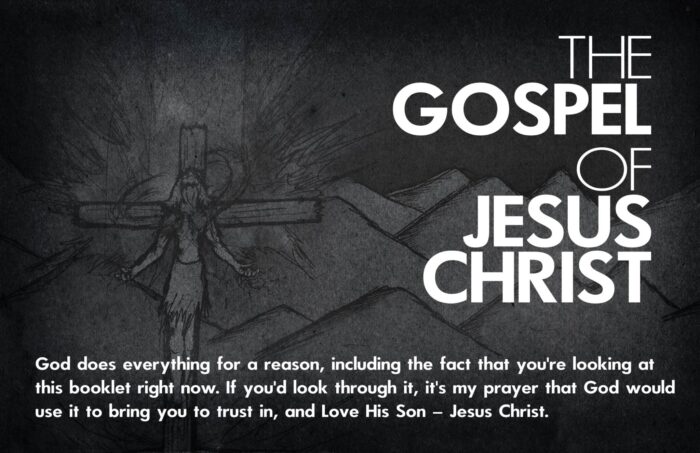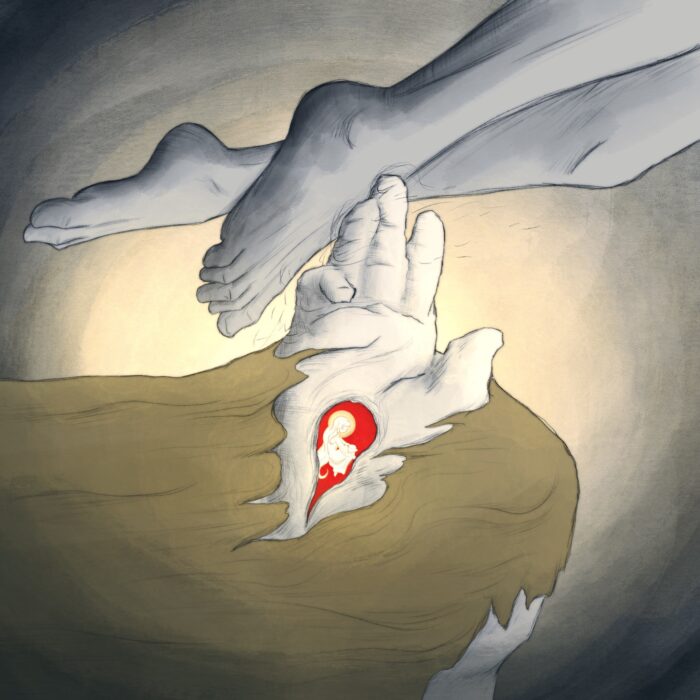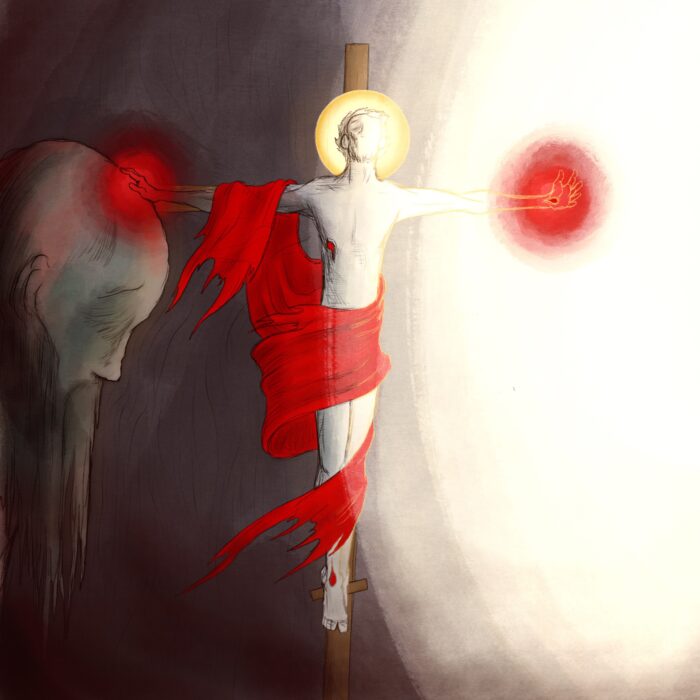Romans 11:35-36, “…who has given a gift to [to the Lord], that he might be repaid (Job 41:11)? For from Him and to Him and through Him are all things. To Him be glory forever. Amen.”
The verses just cited form the conclusion to Romans 9-11, in which we read one of the most towering theological struggles in all of Scripture. Why has Israel rejected her Messiah? Why are the ‘Chosen’ and ‘Promised’ people rejected? Why are those with the promises of God now enemies of the Gospel? These are agonizing questions for Paul and working through them leads him face to face with the overwhelming reality of God’s sovereign will, before which the human mind must finally collapse in defeat—either a defeat of rebellion or of worship.
It is significant, then, that in the closing verses of this struggle, Paul quotes from Job 41:11. This is the ‘Leviathan’ text. Leviathan shatters human strength, throws of human fetters, rebuffs human attempts and control, and lays the human low before him. It is an overwhelming force.
In the context of Job 41, YHWH points to Leviathan as a proxy, as it were, for His own sovereign purpose (at the heart of the book of Job is a question not unlike Paul’s in Rom 9-11: ‘Why has God done this?’). If humanity falls impotent before the (created) Leviathan, then how can anyone possibly imagine to scrutinize the ways and will of Leviathan’s Maker? The overwhelming power of Leviathan, then, throws the believing soul upon its face in worshipful humility and humbled worship before YHWH (Job 42:2-6).
That, it seems, is precisely where Paul concludes his own wrestlings with the ‘Leviathan’ of God’s sovereign purposes in election. He is, in the end, cast on his face before the unsearchable wisdom and inscrutable designs of the almighty God (11:33), able only—with Job—to praise YHWH God as the one who ‘can do all things,’ whose purposes cannot be thwarted, whose ways are too wonderful for our minds to comprehend, and before whom the only response of true wisdom is worship.
Every true end is worship…
Yes, if the crucified and risen Jesus is Himself True Wisdom, True Understanding, True Logic, True Theology, and is Himself the Truth of all true thought, then the end of all human attempts to understand, to apprehend, to know must follow Him…must descend with Him through death—through the mouth of Leviathan, as it were, through the inscrutable and unsearchable which is the crucifixion of all creaturely will to power—and rise with Him into the resurrection of thought…which is to say, into Job’s worshipping confession in the blessed dust and ashes of newborn humility, into Paul’s doxological catharsis upon the mist-veiled heights of divine sovereignty, into our Lord’s own Easter-morning song of praise (Ps.22:22-23), the awakening of the Glory which is the dawning of the Day (Ps.57:8).
True theology wrestles with Leviathan; it enters into the mouth of the monster and labors with all its might to understand (as Paul does over Romans 9-11)…But, in the end, it must be devoured…it must pass like Jonah into the belly of the beast, and there he must die…but if it is truly Theo-logy (a Word about God), then its pattern is that of the Word of God, the crucified and risen Christ…
Thus, theology’s death in the mouth of Leviathonic inscrutability is a death with Christ (Christ, whose death under and as arch-absurdity, arch-confusion, arch-intractability bears within it the death of all human thought before the face of the immeasurable and the maddening) such that it also rises with Christ beyond the battle, into the place where Leviathan itself is—through death—transfigured so that it’s primal upheavals in the waters of chaos have become the humble playing of a creature rejoicing before its Creator (Ps. 104:26), and where the best and highest efforts of human thought find their true consummation as they are laid upon the altar of YHWH, their systems and taxonomies, their insights and discoveries, their conflicts and intractabilities consumed in the fires of seraphic praise, the smoke of their burning an incense and pleasing aroma rising to the One from whom, for whom and to whom are all things.




